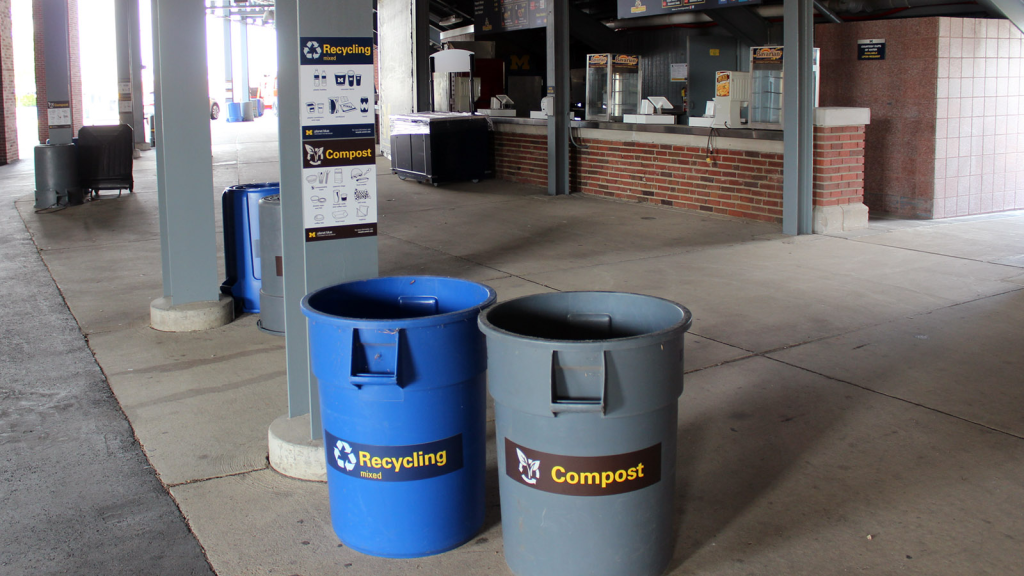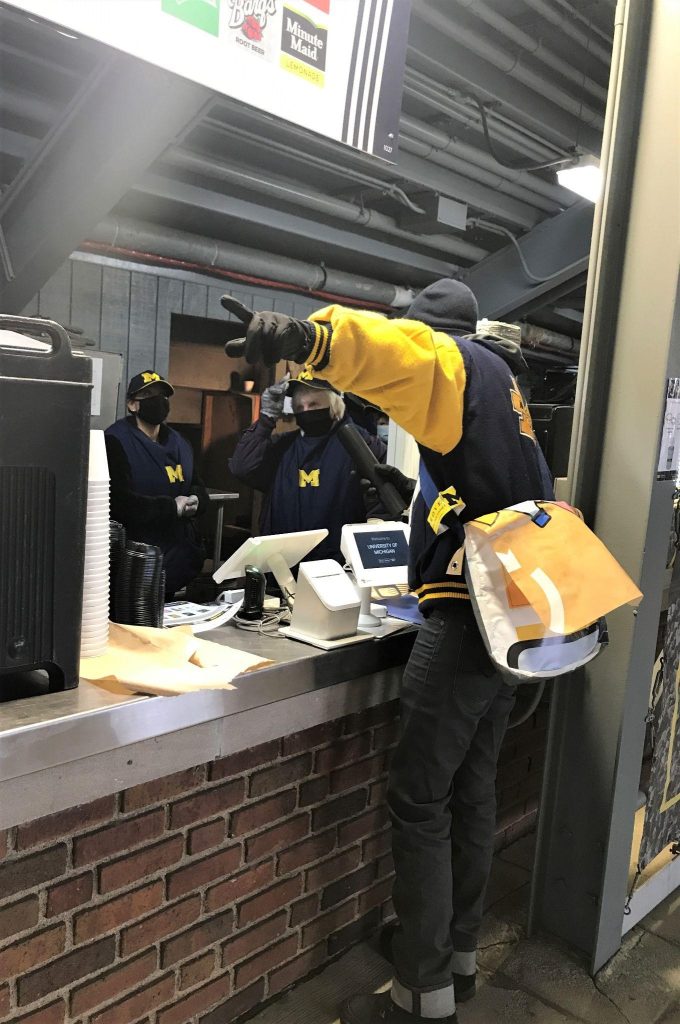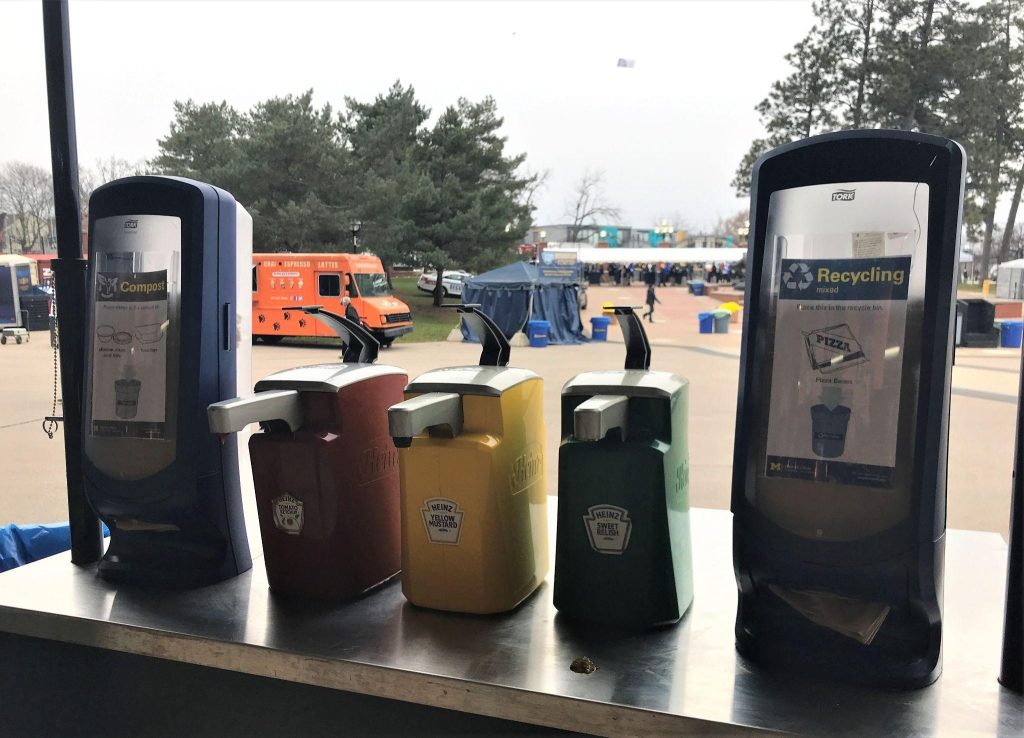Building on a long history of stadium recycling that started in 1999, the University of Michigan football stadium began sourcing compostable products in 2016 and launched the Zero Waste Stadium Program 2017. Zero waste is an aspirational goal of diverting at least 90% of waste from landfill.
This effort is part of a broader commitment to waste reduction and creating a culture of sustainability on campus. Led by the Office of Campus Sustainability and Athletics, with support from Waste Management Services, vendor Centerplate, and stadium staff and volunteers, the initiative has taken root and is continually being improved.

In the 2021 season, the partners paid particular attention to troubleshooting issues with contamination (items in the wrong bin). Though most items sold in the stadium are recyclable or compostable, some non-compostable and non-recyclable waste is inevitable, such as ice bags and plastic wrap from bulk ingredients.
In addition, human behavior is a challenge. Most fans are from out of town and unfamiliar with composting or local recycling guidelines. The organizers do everything they can to help guide and educate stadium users, including thoughtful bin placement, signage, training videos, and student interns to help educate concession staff and volunteers.

Nonetheless, with gameplays and other things on fans’ minds, stopping to properly sort at a waste station is often the last thing they are inclined to do.

This is where waste sorting comes in. Athletics worked with Waste Management Services and the compost company to coordinate the sorting of compostable waste once it arrives at the compost facility. The Monday after each game, a crew of eight people hand sort the stadium’s compostable waste. They remove landfill waste and send any recyclables to the recycling facility.
This collaboration has increased data accuracy and reduced contamination—although preventing contamination on the front end remains important.
The 2021 season boasts 45.5 tons recycled and 15 tons sent to compost, with a diversion rate of 73%! The team will continue striving to reach 90%.
Written by Anya Dale and Alison Richardson

